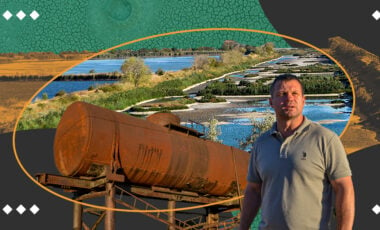Russian occupiers destroy dams to slow Ukraine’s advancement – Ministry of Defense

Photo: Telegram/ Military Media Center
Russian occupying forces mine and regularly blow up hydro-technical structures in the territories where Ukraine's armed forces are counterattacking.
The representative of the Department of Environmental Security and Mine Action of the Ministry of Defense, Major Vladyslav Dudar, stated this, Military Media Center reports.
As the representative of environmental security noted during the round table, Russian troops mined many hydraulic structures in the Zaporizhzhia and Kherson regions.
"They blow up small hydro-technical structures in various settlements daily," Dudar emphasized.
The Major emphasized that the consequences of these actions are not large-scale yet. In general, the agricultural lands of one or two villages suffer from each such blast, but this happens regularly.
For reference:
After the Russian forces blew up the Kakhovka HPP, dozens of settlements in the Kherson and Mykolaiv regions were flooded. The level of flooding in the Kherson region decreased by 64 cm; the water is currently at the mark of 3 m 29 cm.
It should be noted that as of the morning of June 12, the water level in the Kakhovka Reservoir continues to decrease. Still, yesterday the water moved away from the observation point at the Nikopol hydro post.
Representatives of the International Criminal Court in The Hague have already begun an investigation into the Russian terrorist attack on the Kakhovka HPP.
After the terrorist attack on the Kakhovka Dam, the Russians did not stop. To prevent the counteroffensive of the Ukrainian military, the Russian occupying forces blew up a dam on the Mokri Yaly River, which is on the border of the Zaporizhzhia and Donetsk regions.
At the same time, Ukraine's armed forces stated that this would not affect the course of counteroffensive actions in any way.
Earlier, the occupiers destroyed the dam of the Karliv reservoir in the Donetsk region. As a result of the dam's destruction, settlements on the banks of the Mokri Yaly River will be flooded. However, such a disaster as in the Kherson region will probably not happen since the reservoir volume is many times smaller.




















































